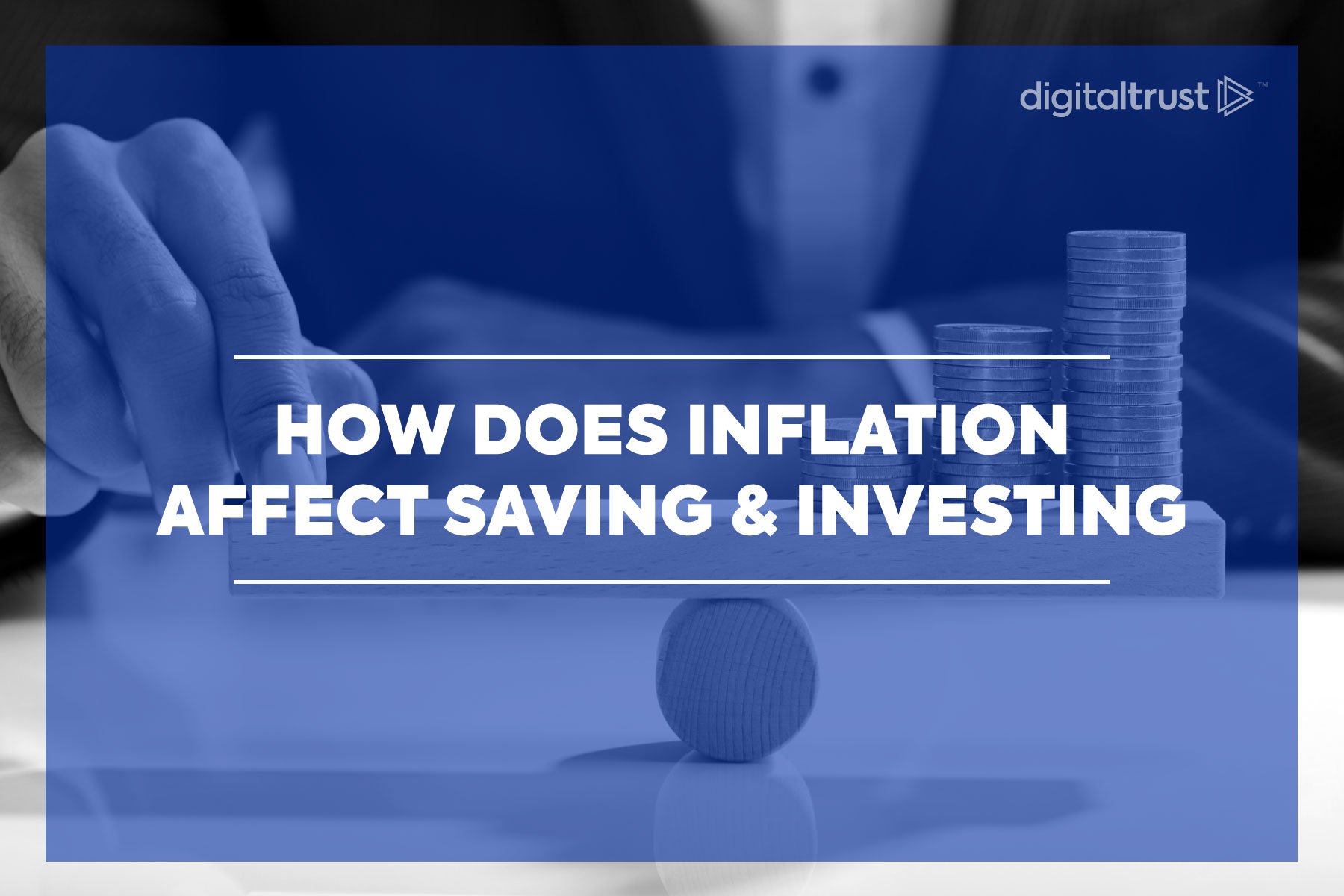Recent upticks in the United States Inflation Rate have brought attention to the economic term: inflation. It’s easy to notice that everyday items like a gallon of gas and a loaf of bread cost more than they did a year ago, but what does that mean for a typical consumer’s investments? The inflation and investing relationship can get complicated as different investment vehicles price inflation in varying ways—begging the question, what is the inflation and investing relationship?
What is Inflation?
Inflation changes the prices people and businesses pay for goods and services. The government tracks consumer inflation and producer inflation through the CPI (consumer price index) and PPI (producer price index). During inflationary periods (economic growth), we experience a positive inflation rate, and during recessions (economic contraction), the inflation rate is usually reduced. Right now, the United States is in a high inflation environment not experienced since the 1980s.
Economists consider a core inflation rate of 2% to be optimal for price and employment stability. When the inflation rate deviates from 2%, institutions such as the Federal Reserve step in to bring the rate back to normal.
Sophisticated analysts use indicators like the difference between short-term and long-term future bond rates to gauge where the economy is headed and what inflation will look like in the future to invest accordingly. But how does the average investor protect their portfolio in the wake of the high inflationary environment we see today?
How to Invest in a High Inflation Environment
By searching “investing during inflation,” it’s easy to learn that real estate, commodities, and inflation-indexed bonds are common traditional hedges against inflation. The first two are tangible assets that, like goods and services, increase in value as inflation increases. Inflation-indexed bond returns rise with inflation because, like an adjustable-rate mortgage, the bond rate increases with inflation maximizing returns as inflation rises. The same goes for investment vehicles that contain adjustable-rate loans of any sort.
However, it is important to remember that we live in an ever-changing world. What worked well 100 years ago may not work today. For example, the relationship between inflation and investment products has changed because the way the financial system works is very different from even 20 years ago.
Right now, the rate of inflation is causing the Federal Reserve to step in and reduce accommodations provided for the pandemic and talk about increasing interest rates. This is causing large investors to pull money out of certain sectors, like tech.
Historically speaking, high-tech stocks would be a great hedge against inflation because of their consistent growth. The problem today with that sector is the amount of low-cost funding it takes to keep companies afloat. As inflation rises, tech companies will have to pay more to borrow the money they need to carry on operations as normal, hurting their bottom line.
For investors looking to diversify a portfolio for changes in inflation, it’s essential to understand how the sector of interest will react to those changes. And when it comes to today’s high inflation environment, investors have been moving money out of tech and into alternative investments, like real estate, precious metals, and other asset options, as well as utilities stocks, commodities.
How Does Inflation Affect Saving and Investing
In general, inflation affects the cost of goods, services, and money. Usually, inflation tracks around 2% on an annual basis. Under normal circumstances, the standard 60/40 model does well to account for inflation.
However, under extraordinary circumstances, inflation affects markets differently. Diversifying an investment portfolio with real estate, commodities, inflation-indexed bonds, and alternative investment vehicles like cryptocurrencies can help to protect investment portfolio from the calamity of inflation. Digital Trust enables investors to keep and track many types of investments, including real estate, stocks, and cryptocurrencies, all in one place.
Start building portfolio diversification and sign up with Digital Trust today.



